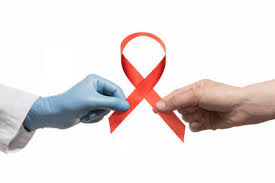Training course on HIV/AIDS Prevention, Treatment, and Care
Training Course on HIV/AIDS Prevention, Treatment, and Care is designed to equip healthcare professionals, community health workers, and policymakers with the essential knowledge and skills needed to effectively address the HIV/AIDS epidemic.

Course Overview
Training Course on HIV/AIDS Prevention, Treatment, and Care
Training Course on HIV/AIDS Prevention, Treatment, and Care is designed to equip healthcare professionals, community health workers, and policymakers with the essential knowledge and skills needed to effectively address the HIV/AIDS epidemic. Despite significant advancements in treatment and prevention, HIV/AIDS remains a critical public health challenge globally. This course emphasizes a comprehensive approach that encompasses prevention strategies, effective treatment options, and compassionate care for individuals living with HIV/AIDS.
Participants will explore the biological, social, and economic factors that contribute to the spread of HIV, as well as the latest evidence-based practices for prevention and treatment. The course will deliver practical insights into antiretroviral therapy (ART), adherence strategies, and the importance of regular health monitoring. Additionally, it will address the stigma associated with HIV/AIDS and highlight the importance of community engagement in combating this epidemic. Through interactive workshops, case studies, and hands-on activities, attendees will develop the skills necessary to implement effective HIV prevention programs, manage treatment protocols, and provide holistic care to affected individuals. By the end of the course, participants will be empowered to contribute to reducing the incidence of HIV and improving the quality of life for those living with the virus, ultimately advancing public health outcomes in their communities.
Course Objectives
- Understand the epidemiology and transmission of HIV/AIDS.
- Analyze the biological and social factors influencing HIV spread.
- Develop effective HIV prevention strategies tailored to community needs.
- Explore antiretroviral therapy (ART) and treatment adherence.
- Implement comprehensive care models for individuals living with HIV/AIDS.
- Address stigma and discrimination associated with HIV/AIDS.
- Engage communities in HIV prevention and care initiatives.
- Evaluate the impact of HIV prevention programs on public health.
- Understand the role of testing and counseling in HIV management.
- Explore emerging treatments and preventive measures for HIV/AIDS.
- Foster collaboration among healthcare providers and community organizations.
- Monitor and assess health outcomes for individuals receiving treatment.
- Develop action plans for implementing HIV/AIDS programs.
Target Audience
- Healthcare professionals
- Community health workers
- HIV/AIDS program managers
- Epidemiologists
- Social workers
- Medical students
- Policy makers
- Educators in health promotion
Course Duration: 5 Days
Course Modules
Module 1: Understanding HIV/AIDS
- Overview of HIV/AIDS epidemiology and global impact.
- Modes of transmission and risk factors.
- Stages of HIV infection and disease progression.
- The immune system and the role of CD4 cells.
- Importance of early diagnosis and treatment.
Module 2: Prevention Strategies
- Evidence-based approaches to HIV prevention.
- Role of condoms and safe sex practices.
- Pre-exposure prophylaxis (PrEP) and post-exposure prophylaxis (PEP).
- Community-based prevention initiatives.
- Behavioral and structural interventions in prevention.
Module 3: Antiretroviral Therapy (ART)
- Overview of ART and its mechanisms.
- Types of antiretroviral drugs and treatment regimens.
- Managing side effects and drug interactions.
- Strategies for improving treatment adherence.
- Monitoring treatment effectiveness and viral load.
Module 4: Comprehensive Care for HIV/AIDS
- Holistic care models for individuals living with HIV/AIDS.
- Mental health support and counseling.
- Nutritional considerations and health maintenance.
- Addressing co-infections and comorbidities.
- Importance of regular health assessments.
Module 5: Stigma and Discrimination
- Understanding the stigma associated with HIV/AIDS.
- Strategies to combat stigma in healthcare settings.
- Engaging communities to reduce discrimination.
- Role of education and awareness in reducing stigma.
- Case studies on successful anti-stigma initiatives.
Module 6: Community Engagement
- Importance of community involvement in HIV prevention.
- Building partnerships with local organizations.
- Engaging key populations and at-risk groups.
- Developing culturally sensitive interventions.
- Evaluating community-based programs.
Module 7: Monitoring and Evaluation
- Tools for assessing HIV prevention and treatment programs.
- Data collection methods and indicators.
- Analyzing data to inform decision-making.
- Continuous quality improvement in HIV services.
- Reporting and communicating outcomes to stakeholders.
Module 8: Future Directions in HIV/AIDS Management
- Emerging treatments and vaccine research.
- Innovations in HIV prevention strategies.
- Global health initiatives and funding opportunities.
- The role of technology in HIV care and prevention.
- Developing sustainable programs for long-term impact.
Training Methodology
- Interactive Workshops: Facilitated discussions, group exercises, and problem-solving activities.
- Practical Demonstrations: Hands-on experience with treatment protocols and care techniques.
- Case Studies: Real-world examples to illustrate effective HIV management practices.
- Role-Playing and Simulations: Practice decision-making in realistic healthcare scenarios.
- Expert Presentations: Insights from experienced HIV/AIDS specialists and public health leaders.
- Group Projects: Collaborative development of HIV prevention and care strategies for local communities.
- Action Planning: Development of personalized action plans for implementing learned practices.
- Digital Tools and Resources: Utilization of online platforms for tracking and reporting HIV data.
- Peer-to-Peer Learning: Pairing experienced practitioners with those new to HIV/AIDS management.
- Post-Training Support: Access to online forums, mentorship, and continued learning resources.
Register as a group from 3 participants for a Discount
Send us an email: info@datastatresearch.org or call +254724527104
Upon successful completion of this training, participants will be issued with a globally- recognized certificate.
Tailor-Made Course
We also offer tailor-made courses based on your needs.
Key Notes
- Participants must be conversant in English.
- Upon completion of training, participants will receive an Authorized Training Certificate.
- The course duration is flexible and can be modified to fit any number of days.
- Course fee includes facilitation, training materials, 2 coffee breaks, buffet lunch, and a Certificate upon successful completion.
- One-year post-training support, consultation, and coaching provided after the course.
- Payment should be made at least a week before the training commencement to DATASTAT CONSULTANCY LTD account, as indicated in the invoice, to enable better preparation.